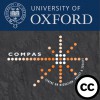The Urban Outlaw as Rights Broker
As activists lament that the rights-based aims of the 2011 Egyptian Revolution feel increasingly distant, research is necessary on the documentation of ongoing social-justice struggles in Cairo, though they may not be framed as 'revolutionary' by participants themselves. In August 2010 and in February 2011, during the 18 days of Hosni Mubarak’s fall, a group of 231 resettled slum dwellers from the Duweiqa district of Cairo, abandoned their 23 square-meter allocated homes to squat live-able larger ones in Haram City, a budget gated community marketed by developers and development practitioners alike as a new best-practice "cooperative" public-private partnerships for low-income housing. In this forced 'arrival city', squatters leverage their foothold on vast expanses of empty houses to negotiate a return home. This paper traces their metaphorical use of rights-based language – aligning notions of moral 'rootedness' in property and place, outlaw discourse, and brokerage practices – outside of dominant legal and revolutionary norms, towards survival..




